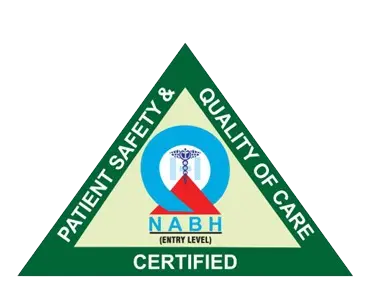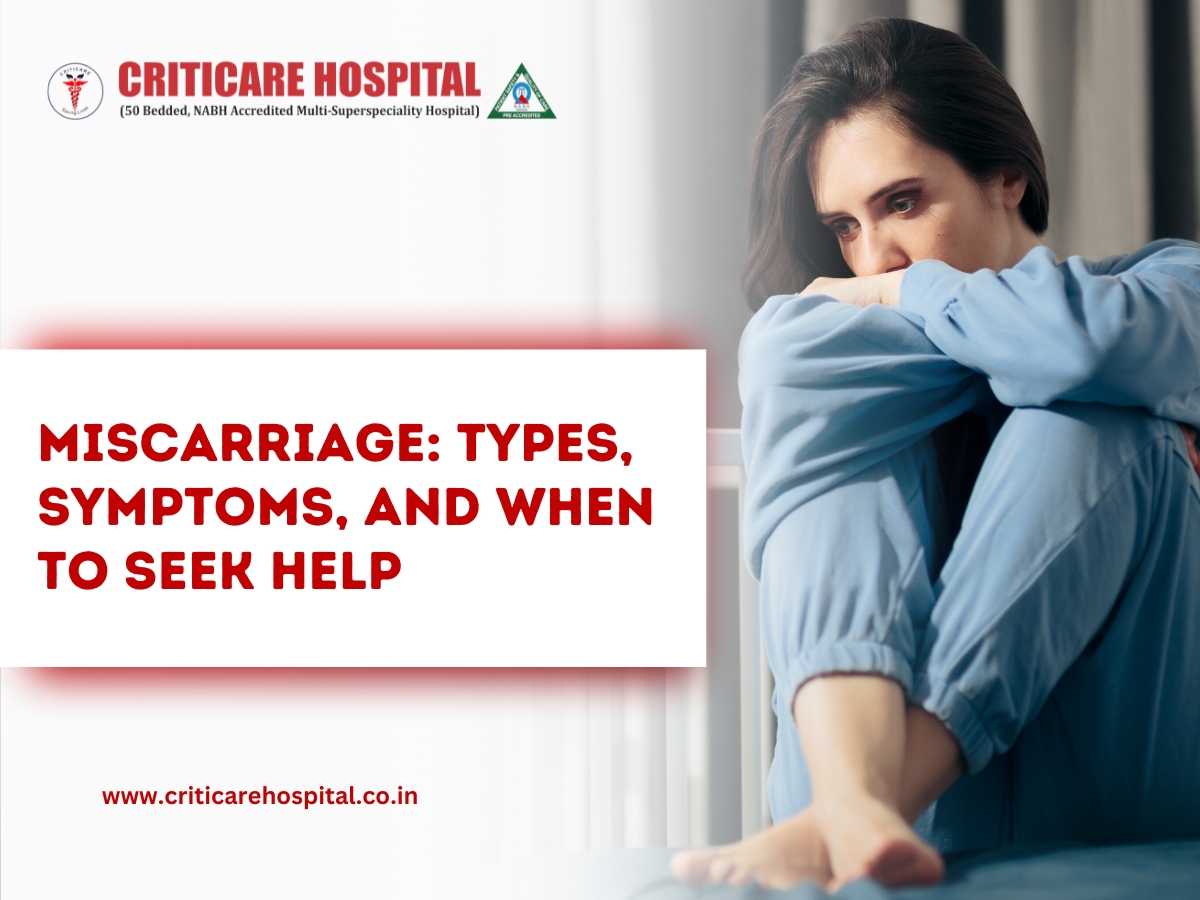A pregnancy that ends before 20 weeks requires the term spontaneous abortion or miscarriage. This condition impacts between 10 to 20% of visible pregnancies and remains poorly understood throughout society. We give you essential data about spontaneous abortion to help you and others who need this knowledge during hard times.
Types Of Miscarriage:
Around 10-20% of couples experience different types of miscarriages from various pregnancy issues. Understanding the different types and signs of miscarriage helps you better understand what happens during your loss and helps you make better choices. Continue reading to get brief information related to different types of miscarriages that are common:
- Threatened miscarriage: The first-trimester bleeding shows up before the cervix seals shut. Despite this condition, pregnancy continues effectively. The medical staff needs to watch impacted patients while they take necessary rest periods.
- Inevitable miscarriage: The medical term tells about vaginal bleeding happening when the cervix remains open. When only this symptom appears doctors must determine that continuing the pregnancy is no longer possible.
- Incomplete miscarriage: Some miscarriage cases produce pregnancy tissue through the uterus but leave the remaining pregnancy parts inside. The bleeding and cramping continue until all products of pregnancy leave the body.
- Complete miscarriage: The uterus empties all pregnancy materials during this event. After the bleeding ends the uterus naturally returns to its normal size.
- Missed miscarriage: The body holds a dead embryo or fetus without natural removal due to an unfortunate medical development. Doctors notice this condition most often during normal ultrasound scans because patients usually do not experience any symptoms.
- Recurrent miscarriage: Medically these failures mean when three or more pregnancies end before birth. When miscarriages happen more than once they show medical problems that need a complete examination.
- Chemical pregnancy: When a fertilized egg connects to the uterus it fails to develop which signals a chemical pregnancy.
- Ectopic pregnancy: Despite this issue not matching typical miscarriage standards a fertilized egg is attached to non-uterine tissue mainly in the fallopian tube during pregnancy.
Possible Miscarriage Symptoms
These signs must be recognized so that an attempt for medical care may be made in time. The common symptoms include:
- Vaginal Bleeding: Someone bleeds mildly to heavily from the vagina with blood clots.
- Abdominal Pain or Cramping: You may sense strong menstrual period pain without the usual discomfort.
- Back Pain: You must endure either constant or intense low back pain.
- Passage of tissue: Clot-like tissue moves beyond the vaginal opening.
- Symptoms of Pregnancy: When a woman suddenly loses her nausea or breast pain symptoms.
- When someone experiences a missed miscarriage they may not detect any signs at all. The problem can be accurately recognized through ultrasound tests when other symptoms disappear.
Causes for Miscarriage
Triggers for a miscarriage can be many, including:
- Potential chromosomal abnormalities: These rare problems show up in pregnant women before their first pregnancy trimester ends.
- Maternal illnesses and conditions: Having diabetes or thyroid problems plus having autoimmune system illnesses raises the chance of pregnancy loss.
- Infections: Some infections like rubella and listeriosis create problems for the pregnancy.
- Uterine abnormalities: The body’s shape or position problems including fibroids can lead to pregnancy loss.
- Lifestyle factors: People who smoke too much drink heavily and take drugs worry about their pregnancy.
- Traumatic circumstances: Physical trauma to the abdomen or severe stress may occasionally play a part.
When to Get Help
A miscarriage may sometimes happen without a need for medical interventions; however, some conditions may require immediate treatment. Hence, contact your health care & Gynaecologist professional if:
- Heavy Bleeding: If they soak through two or more pads in an hour, or bleed accompanied by a large clot.
- Intense Pain: If pain continues intensely in the abdomen or pelvis for more than a couple of minutes.
- Fever or Chills: This might indicate that an infection is occurring, particularly if tissue remains in the uterus.
- Dizziness or Faintness: A person with this symptom needs urgent medical attention because they have lost blood excessively.
- Suspected Ectopic Pregnancy: Take yourself to the emergency room right away if you experience pain on only one side and in your shoulder muscles along with spotting possible internal bleeding.
Diagnosis and Treatment
Certain test methods help medical professionals recognize the problems a pregnant couple experiences and conduct effective treatments for their condition. A medical professional can use several tests to help you understand abortion-related problems.
Diagnosis
In a diagnosis of miscarriage, generally, healthcare providers may rely on:
- Ultrasound: Our tests help us check if the fetus has a heartbeat and if the sack contains tissues.
- Blood Tests: The test shows hCG levels but it does not show if a pregnancy advances normally.
- Pelvic Exam: Our exam checks how the cervix looks and monitors the movement of tissue.
Treatment Options
Treatment depends on the type of miscarriage and the stage it’s in:
- Expectant management: The body needs to let the tissue exit naturally.
- Medications: After a certain miscarriage stage doctors prescribe misoprostol to complete the treatment.
- Surgical procedures may include: Dilation and curettage (D&C) procedures, plus dilation and evacuation (D&E), to help remove leftover tissues.
- Coping and Emotional Support
- Miscarriage puts great mental and physical stress on a person.
- Talk with Loved Ones: Speaking with friends and family will lessen the pain one may feel.
- Support Groups: Connecting with other women who have similar experiences can provide blessings.
- Counselling: Counseling can help process grief and the development of coping methods.
- Healing Take Time: Take time for physical and emotional recovery before thinking about trying another pregnancy.
Prevention and Future Pregnancies
While few miscarriages can be avoided, some actions could minimize the risks:
- Healthy Lifestyle: A balanced diet, optimally working out, and eliminating bad substances is recommended.
- Control of Chronic Conditions: Work closely with your healthcare provider to manage diabetes, hypertension, or thyroid conditions.
- Prenatal Care: Regular check-ups will help to detect early any prospects for risk factors.
- Genetic counselling: When recurrent miscarriages occur, genetic testing is done to find the existing problems.
Conclusion
Having a miscarriage is a very personal and often painful process. Understanding the types and symptoms of miscarriage and their causes often provides assurance and guidance through difficult times. Always seek medical assistance when necessary, and don’t hesitate to reach out for emotional support. Remember, healing takes time.




